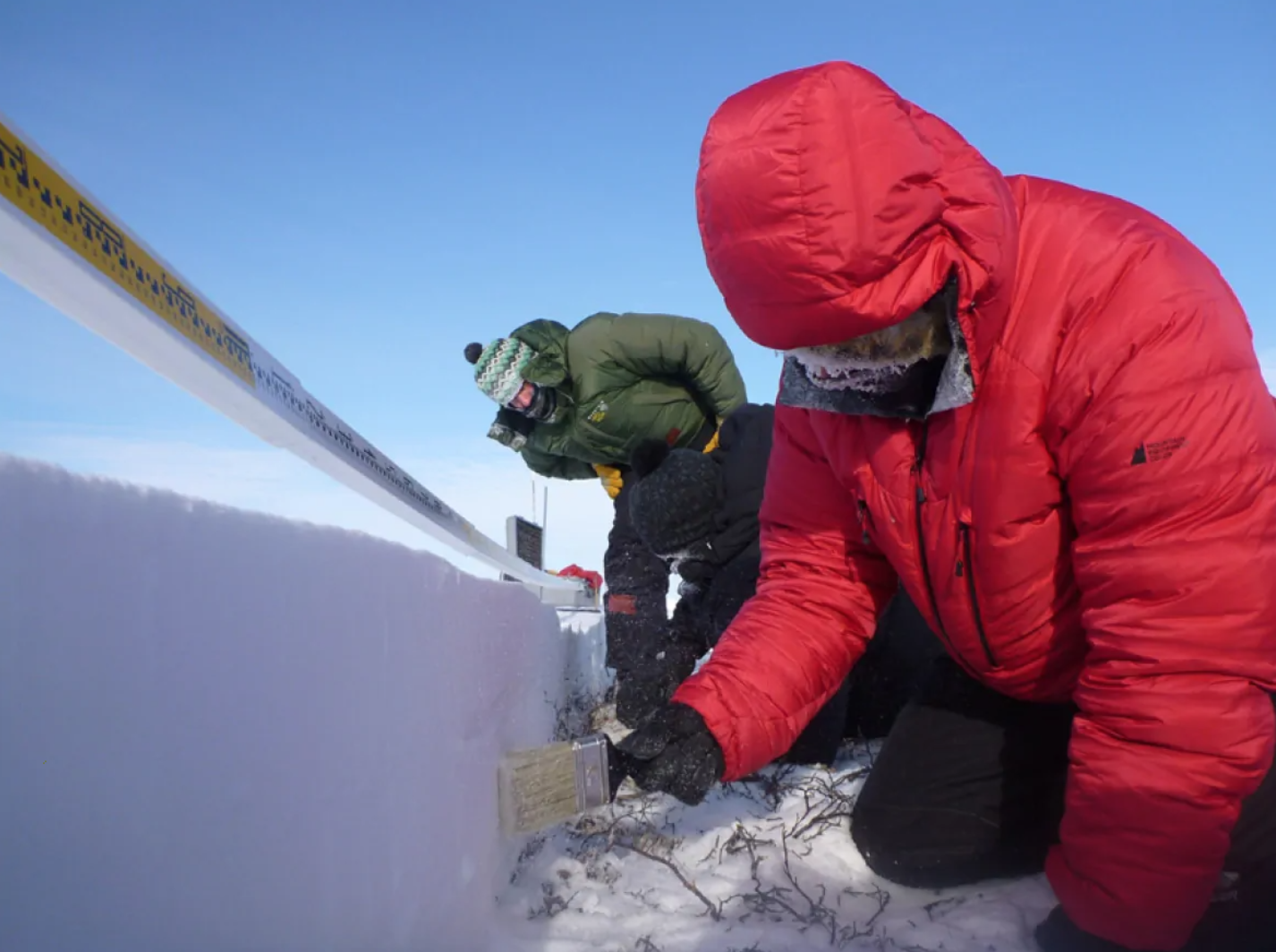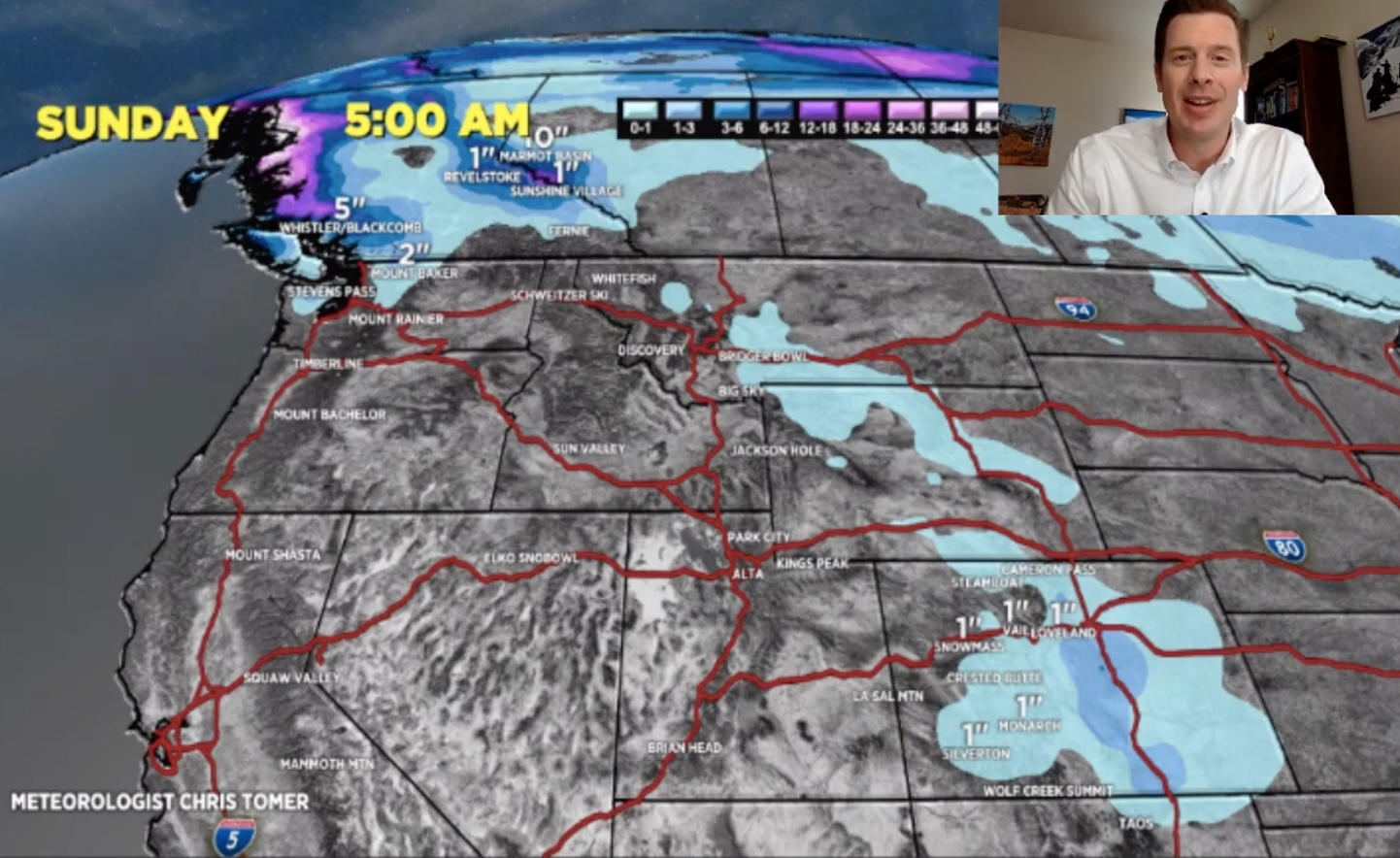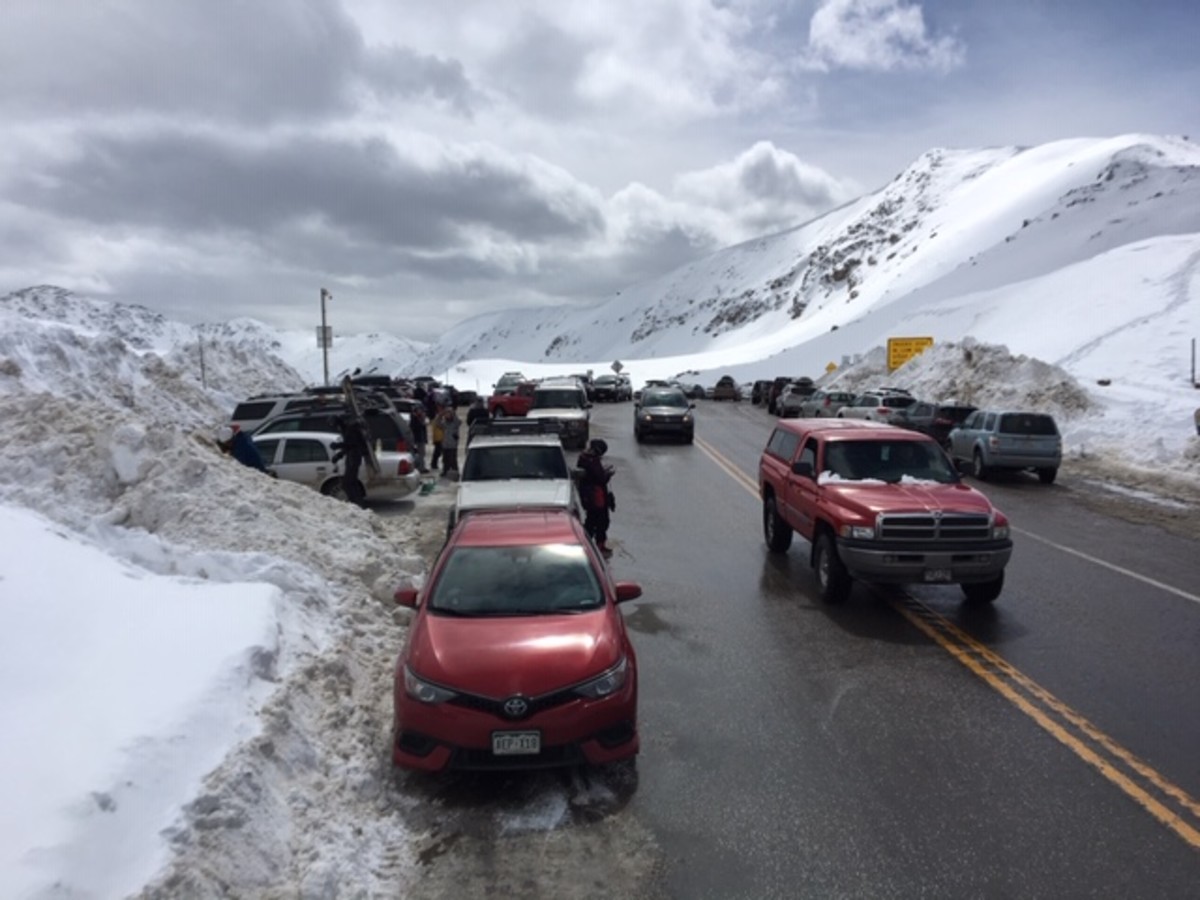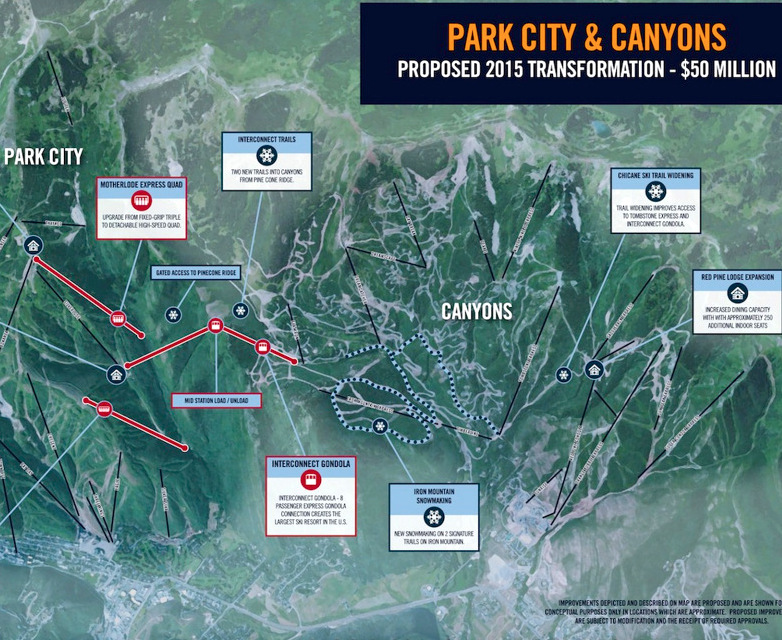
If you’ve been suspicious that less and less snow has been falling in the U.S. and Canada in recent years, you’re not crazy — you’re right.
According to a new study published by climate scientists in Nature on Wednesday, North America has been seeing significantly less snowfall in recent decades while overall snowfall in Eurasia has remained surprisingly constant.
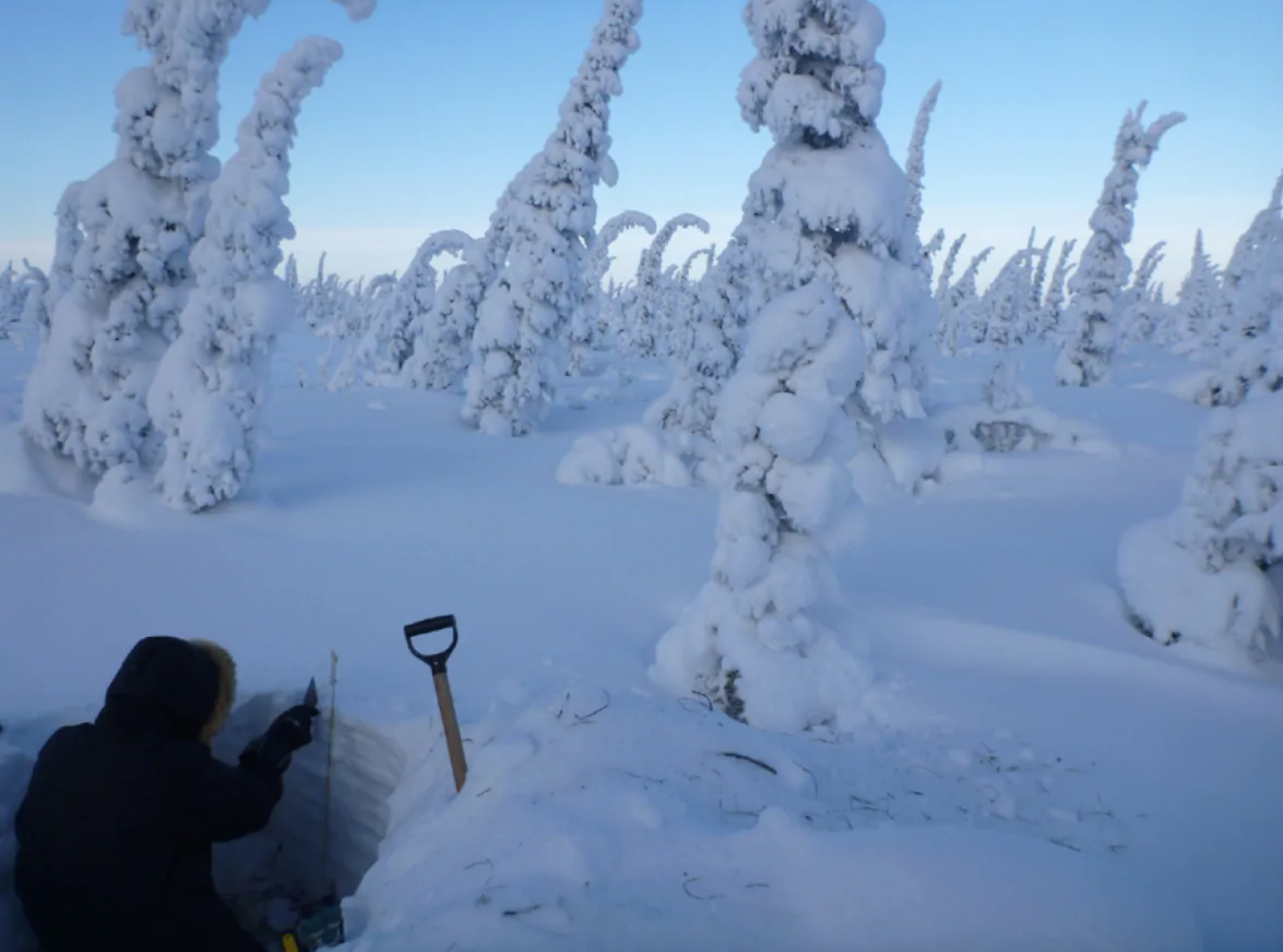
The amount of snow collecting on the ground in North America has been decreasing by 46 billion tonnes per decade since 1980, according to the study.
In the new study, Patterns and trends of Northern Hemisphere snow mass from 1980 to 2018, the authors write:
“Warming surface temperatures have driven a substantial reduction in the extent and duration of Northern Hemisphere snow cover. These changes in snow cover affect Earth’s climate system via the surface energy budget, and influence freshwater resources across a large proportion of the Northern Hemisphere.”
Maps in the study show a wide variation across the hemisphere, with substantial declines in southern Ontario, the Yukon, Alaska, and around Hudson Bay.
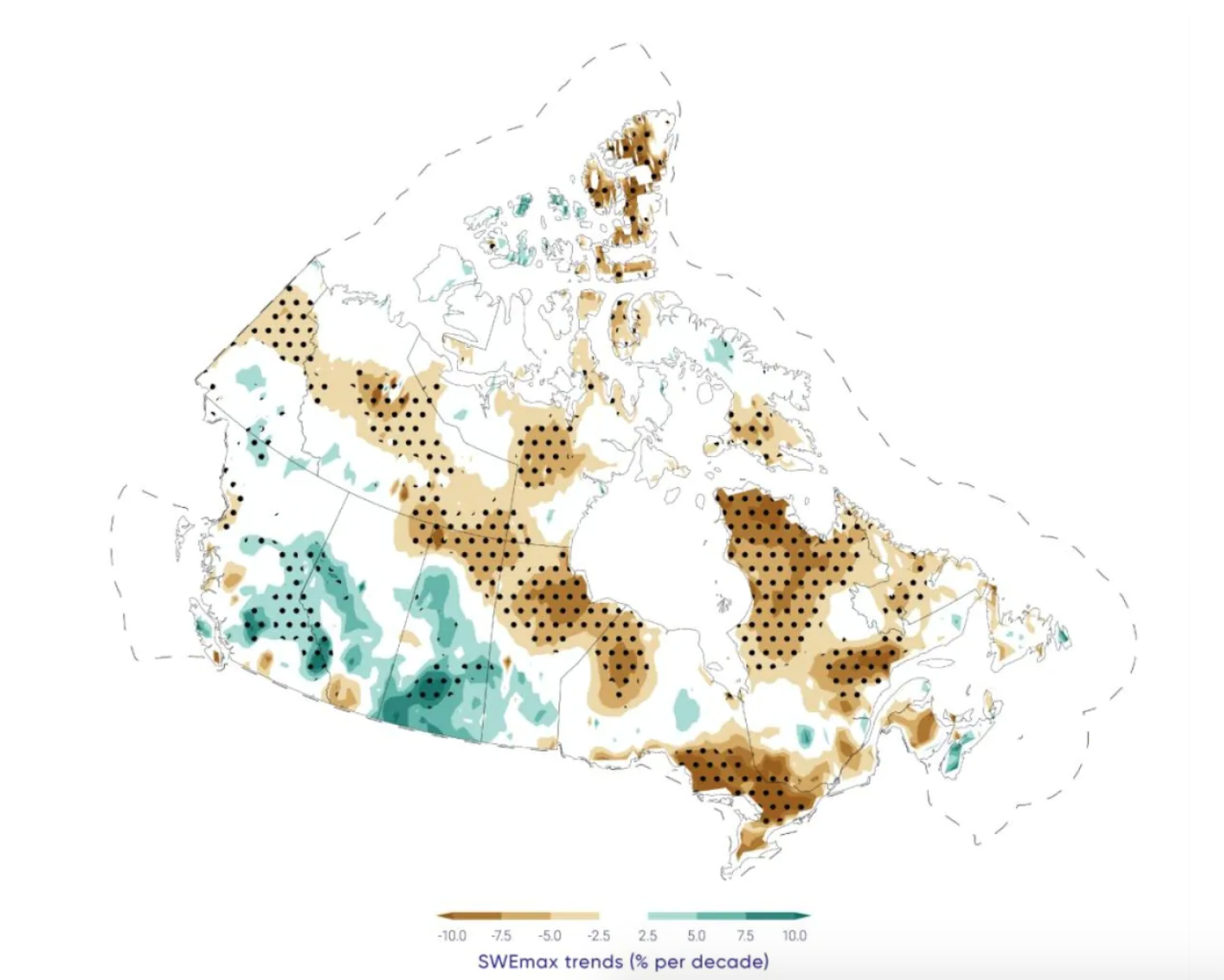
Despite declines in Europe, Eurasia overall hasn’t seen an overall reduction in snowfall over the past four decades, partly because of heavy snowfalls in eastern Siberia.
Chris Derksen, a research scientist at Environment and Climate Change Canada who co-authored the study, said that while a warming climate means the snow season begins later in the year and ends earlier, that doesn’t always mean less snow. That’s because warmer temperatures allow for more moisture in the air, and therefore more precipitation, even in winter when it falls as snow. Derksen predicts in the future, declines in Southern Canada may be offset by more snow in the north.
